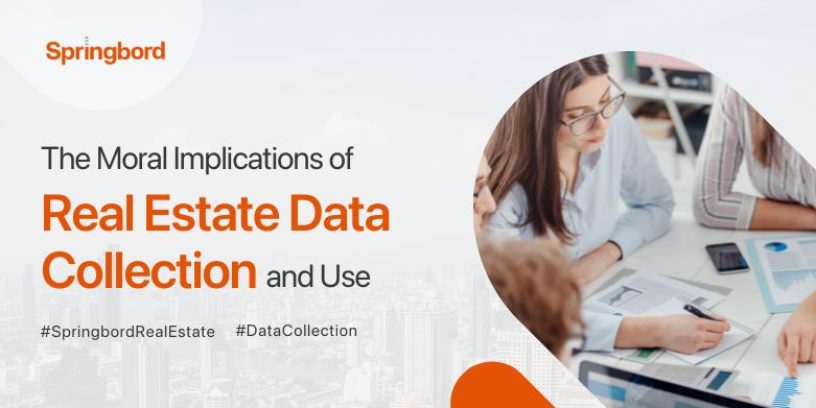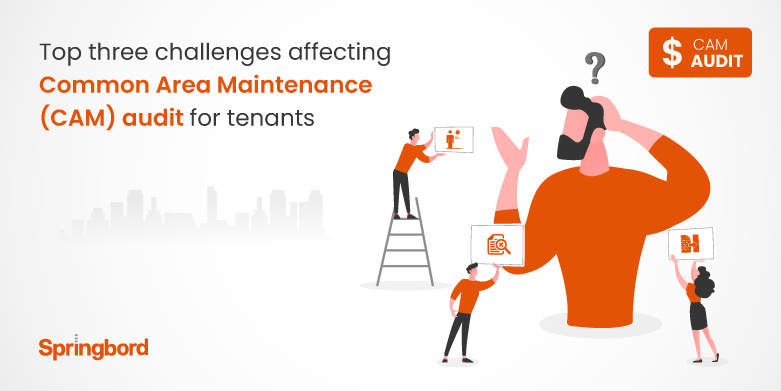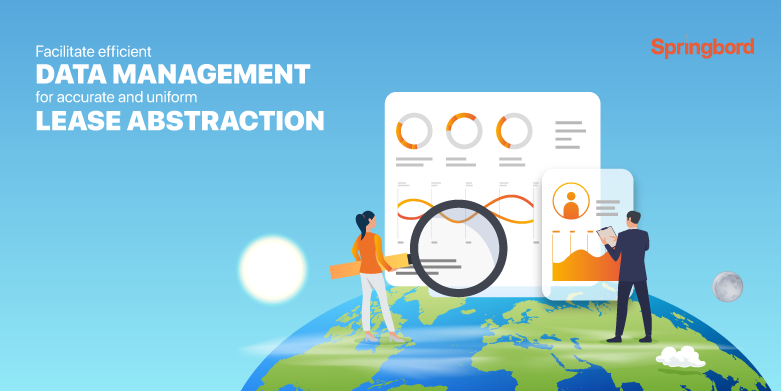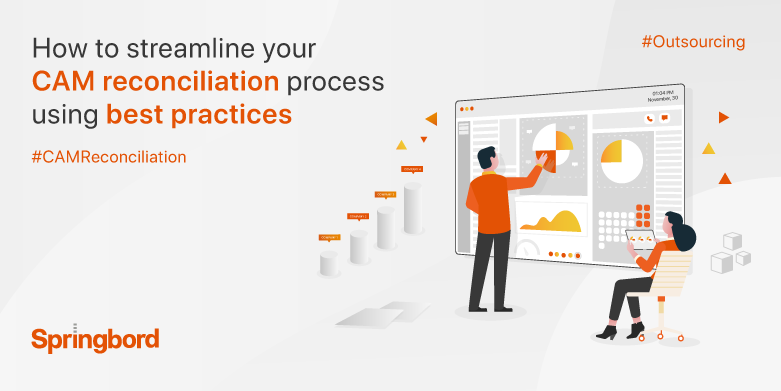 Read time 3 min
Read time 3 minReal estate data is a valuable asset for any company operating in the real estate industry. It provides insights into market trends, property values, and customer behavior.
With the rise of digital technology, collecting and analyzing real estate data has become easier and more efficient.
However, with this ease of access comes the question of ethics: is it ethical to collect and use real estate data? And if so, what are the ethical considerations that companies must keep in mind?
In this blog post, we will explore the ethics of collecting and using real estate data and the ways in which Springbord ensures that it operates ethically.
What is Real Estate Data?
Real estate data refers to any information related to a property, its value, and its market. This information can include property tax records, mortgage information, ownership history, and more.
With the advent of digital technology, real estate data has become increasingly accessible to companies and individuals alike.
Why is Real Estate Data Valuable?
Real estate data is valuable because it provides insight into the market and individual properties.
With this data, companies like Springbord can analyze market trends, compare properties, and make informed decisions about buying and selling.
This data can also be used to create predictive models that can help companies anticipate market changes and make better investment decisions.
Collecting Real Estate Data
Collecting real estate data involves gathering information about properties and the real estate market. This data can include information such as property value, location, size, and features. Real estate companies collect data through various sources, including public records, real estate agents, and online platforms.
One of the ethical concerns associated with collecting real estate data is the issue of privacy. While some data is publicly available, such as property records, other data is private, such as homeowner information.
Real estate companies must ensure that they are collecting data in a way that is legal and ethical. This means obtaining consent when necessary and following data protection regulations.
Using Real Estate Data
Real estate data is used for a variety of purposes, including property valuation, market analysis, and trend forecasting. However, using real estate data also raises ethical concerns.
One of the main concerns is the possibility of discrimination. Real estate companies must ensure that they are not using data in a way that discriminates against certain groups of people.
For example, using data to target specific neighborhoods based on race or ethnicity would be considered discriminatory.
Misuse of information is another area of concern. Real estate companies must ensure that they are using data in a way that is ethical and legal. This means ensuring that the data is not being used for fraudulent purposes or in a way that harms individuals or communities.
Ethical Principles for Collecting and Using Real Estate Data
To ensure that real estate companies are collecting and using data in an ethical way, several principles must be followed.
Transparency: Real estate companies must be transparent about the data they are collecting and how it is being used. This means providing clear and concise explanations of the data being collected and why it is necessary.
Privacy: Real estate companies must ensure that they are collecting data in a way that respects individuals’ privacy rights. This means obtaining consent when necessary and following data protection regulations.
Accuracy: Real estate companies must ensure that the data they are collecting is accurate, up-to-date, and reliable. This means verifying the data from multiple sources and ensuring that it is not biased.
Non-Discrimination: Real estate companies must ensure that they are not using data in a way that discriminates against certain groups of people. This means avoiding the use of data to target specific neighborhoods based on race or ethnicity.
Legal and Ethical Use: Real estate companies must ensure that they are using data in a way that is legal and ethical. This means ensuring that the data is not being used for fraudulent purposes or in a way that harms individuals or communities.
Conclusion
The collection and use of real estate data can be a valuable tool. However, it’s important that companies approach the collection and use of data with ethics in mind.
They must ensure that they are collecting data in a legal and ethical manner, obtaining consent from property owners, and protecting that information from unauthorized access.
They must also use the data in a legal and ethical manner, not discriminating against potential buyers or renters and not contributing to the gentrification of a neighborhood.
By approaching the collection and use of real estate data in an ethical manner, companies can better serve their clients and contribute to a more equitable real estate market.







